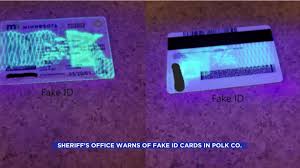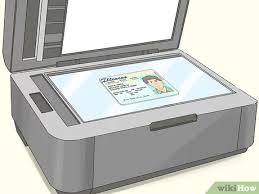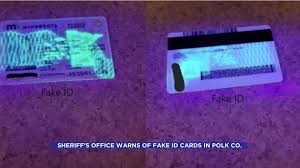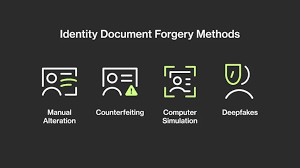Using fake IDs to uncover new horizons in crime
Using fake IDs to uncover new horizons in crime
Using fake IDs is a common but complex behavior, especially among young people and adolescents. It is driven by a variety of social, emotional, and personal factors as individuals seek ways to navigate age-restricted environments and experiences. While it is easy to focus on the legal consequences of using fake IDs, this article delves deeper into the social and personal motivations behind this practice, exploring the underlying reasons why individuals choose to engage in this behavior.
Access to restricted venues and events
One of the most common reasons for obtaining a fake ID, such as a Georgia fake ID, New York fake ID, or Texas fake ID, is the desire to gain access to venues and participate in activities that are not accessible due to age restrictions. Bars, nightclubs, and certain concerts or events often have strict age requirements, often set at 18 or 21. For many young people, especially those in social or urban settings, these venues are an important part of their social lives. The opportunity to attend these events, whether it be dancing at a popular nightclub or enjoying a live show with friends, is seen as an important aspect of social inclusion.












A fake ID is a passport to these restricted spaces. For many, it is not just about getting into a venue, but about the experience that can be had once inside. The atmosphere, networking opportunities, and memories made at these events are often cited as the main reasons young people are willing to take the risk of using a fake ID. It allows them to fully immerse themselves in a social scene that they might otherwise feel inaccessible to.
Social Inclusion and Peer Influence
Social dynamics play a big role in the decision to use a fake ID. Fear of missing out (FOMO) is a powerful motivator, especially for young people navigating social circles, where inclusion is key to maintaining friendships and bonds. Individuals without valid IDs may feel excluded or outcasted when their peers attend parties, events, or gatherings that require age verification. In a culture that places a high value on shared experiences, being excluded from these events can lead to feelings of isolation or inadequacy.
In this context, a fake ID is less about the physical document than the social currency it provides. It enables individuals to attend the same events as their friends, fostering a sense of belonging and inclusion. By using a fake ID, they can avoid the embarrassment or disappointment of being locked out, ensuring that they remain part of the group and maintain their social status.
Enhancing the College Experience
For many young people, college represents a period of newfound freedom, independence, and exploration. It is often considered a time in life when one can experience different aspects of adult life, including nightlife, drinking, and socializing. Using a fake ID can enhance this college experience by giving underage students access to places and events that are part of campus life.
Many students view these experiences as rites of passage. Going to parties, going to bars with friends, and participating in wider social activities are all seen as an important part of the college lifestyle. Fake IDs can ensure that underage students do not miss out on these opportunities, allowing them to fully participate in the social aspects of college life. For some, having a fake ID can be a crucial step towards adulthood, as it allows them to make their own choices about where to go and what to do.
Convenience and Avoiding Embarrassment
In social situations where alcohol is a major feature, not having access to alcohol can lead to awkward or uncomfortable moments. Imagine attending a dinner or social gathering where everyone is drinking, but as someone under the legal drinking age, you are unable to join in. This can lead to embarrassment or social anxiety, especially when people expect them to join in.
Fake IDs offer a convenient solution to this problem. It allows individuals to navigate these situations without drawing attention to their age or feeling left out. Whether it’s purchasing alcohol in a store, entering a bar, or simply ordering a drink at a restaurant, the convenience of having a fake ID can help individuals avoid the potential embarrassment of being excluded from social norms.
Early Independence and Exploration
Many young people see fake IDs as a tool to explore independence and experience adulthood on their own terms. Adolescence and early adulthood are important times of personal growth, and the desire to explore new freedoms is a natural part of this process. For some, fake IDs represent a way to bypass age restrictions, granting them the freedom to make choices and participate in activities typically reserved for adults.
This early independence is attractive to those who crave control over their own lives and decisions. Whether it’s going to a club, buying alcohol, or attending a concert, the ability to act independently without waiting for the legal age to do so can be empowering. This sense of autonomy is particularly appealing to those who see adulthood as a time of increased freedom and responsibility.
Building Confidence in Social Situations
For some, the thrill of successfully using a fake ID can be a huge boost to their self-confidence. The process of successfully using a fake ID, whether it’s convincing a bouncer or making a purchase, inspires a sense of accomplishment. This confidence often transcends the specific situation and has a positive impact on their overall confidence in social situations.
Young people who feel unsafe or uncomfortable in certain environments can use fake IDs to build confidence. The act of using an ID becomes a practice for social navigation, allowing them to feel more comfortable and confident in environments that might otherwise be intimidating.
Networking and Expanding Your Social Circle
In addition to the direct social advantages, using a fake ID can also provide opportunities to network and expand your social circle. Age-restricted venues, such as bars, nightclubs, and certain events, are often spaces where individuals can meet new people, form friendships, and even make professional connections. For young people eager to broaden their horizons, these venues are valuable places to develop personal and professional relationships.
By entering these spaces, individuals can interact with a wider range of people, potentially opening doors to new opportunities and experiences. The connections made in these environments can play an important role in shaping a person's social and professional life, so using a fake ID can seem like a worthwhile investment for those seeking to expand their network.
Lifestyle and Image
In some cases, using a fake ID is not just about attending age-restricted events; it's also about projecting a certain lifestyle or image. In social settings where status and appearance are highly valued, being able to participate in the same activities as older peers can help young people feel more mature, sophisticated, or aligned with the lifestyle they seek.
For example, in cities with a vibrant nightlife, being able to frequent exclusive clubs or trendy bars can be seen as a sign of social status. Possessing a fake ID allows individuals to participate in these spaces, helping to develop a personal image that matches their aspirations.
Conclusion
The appeal of fake IDs goes beyond the simple desire to bypass age restrictions. For many young people, it is closely tied to a desire for social inclusion, independence, personal growth, and to fully participate in experiences that are seen as essential to their development. While the short-term benefits of using a fake ID can be significant, it is important to recognize the wider impacts and potential consequences of this behavior. Ultimately, authentic experiences and the patience to wait for the right time to engage in certain activities often lead to more meaningful and lasting personal growth.










Big Treat Back for New Product Development Participation: Your feedback matters! We offer incentives to customers who participate in our new product development, shaping the future of our offerings together.

 counterfeit identification
counterfeit identification
 fake ID laws
fake ID laws
 Fake University Cards
Fake University Cards
 ISS number on a fake ID
ISS number on a fake ID